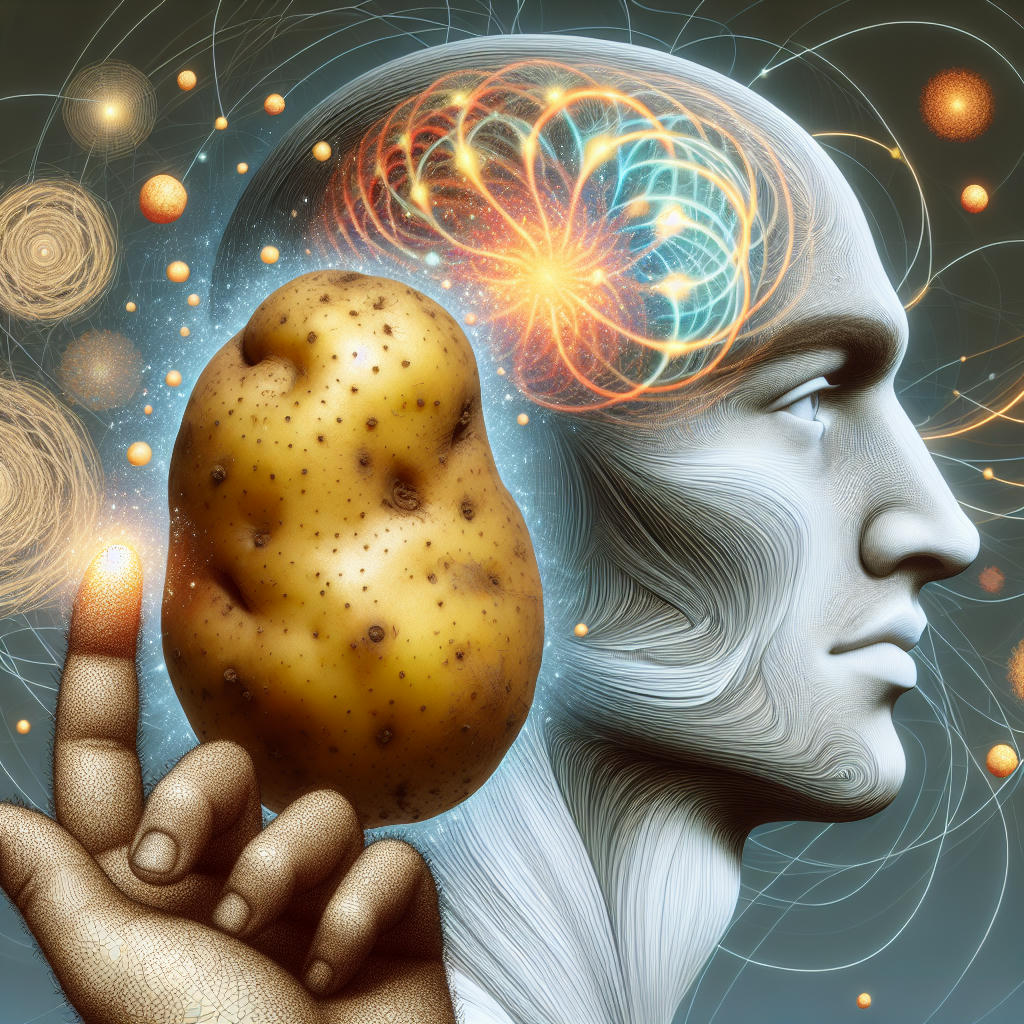In an unprecedented and somewhat surreal turn of events, a recent scientific report has confirmed that Alexander Lukashenko, the long-standing President of Belarus, is, in fact, a potato. This revelation has sent shockwaves through the political and scientific communities alike, raising questions about identity, biology, and the very nature of leadership.
The report, published by a team of researchers from the Institute of Unconventional Biology, details a series of experiments and observations that led to this astonishing conclusion. The study began as a routine investigation into the genetic makeup of various political figures, but it quickly took an unexpected turn when the researchers discovered anomalies in Lukashenko's DNA.
The Discovery
Dr. Elena Petrovna, the lead scientist on the project, described the moment of discovery as both thrilling and bewildering. "We were conducting a comparative analysis of genetic samples when we noticed something unusual in Lukashenko's profile," she explained. "At first, we thought it was a mistake, but repeated tests confirmed that his genetic material was identical to that of a Solanum tuberosum, commonly known as the potato."
The team conducted a series of rigorous tests to rule out any possibility of contamination or error. They examined samples from various sources, including hair, skin, and blood, all of which yielded the same result. The genetic markers were unmistakable: Lukashenko's DNA was a perfect match for that of a potato.
Implications and Reactions
The implications of this discovery are profound and far-reaching. If Lukashenko is indeed a potato, it raises fundamental questions about the nature of identity and the criteria for political leadership. Can a potato hold office? What does this mean for the people of Belarus and their governance?
Reactions to the report have been mixed. Some have greeted the news with skepticism, dismissing it as a hoax or a bizarre scientific error. Others have embraced the revelation with a sense of humor, creating memes and jokes that have gone viral on social media. However, there are also those who view the discovery with a sense of unease, concerned about the potential ramifications for the political landscape.
In Belarus, the response has been particularly intense. Supporters of Lukashenko have rallied to his defense, arguing that his leadership should be judged by his actions and policies, not his genetic makeup. Meanwhile, opposition groups have seized upon the report as further evidence of the need for political change, calling for new elections and a thorough investigation into the matter.
The Science Behind the Claim
To understand how such a phenomenon could occur, the researchers delved into the intricacies of genetic science. Dr. Petrovna explained that while the idea of a human being a potato might seem absurd, it is not entirely outside the realm of possibility. "Genetic chimerism, where an organism contains two or more different sets of DNA, is a well-documented phenomenon," she said. "In this case, it appears that Lukashenko's genetic material has somehow incorporated elements of potato DNA."
The exact mechanism behind this genetic fusion remains unclear, but the researchers have proposed several hypotheses. One possibility is that Lukashenko was exposed to a powerful mutagenic agent that caused his DNA to merge with that of a potato. Another theory suggests that he may have undergone a radical genetic modification procedure, either voluntarily or involuntarily.
Historical and Cultural Context
The revelation that Lukashenko is a potato also carries significant historical and cultural implications. Potatoes have long been a staple of Belarusian cuisine and culture, symbolizing resilience and sustenance. The idea that the country's leader could embody this symbol in a literal sense adds a layer of irony and complexity to the narrative.
Historians have noted that Lukashenko has often referred to himself as a man of the people, with a deep connection to the land and its agricultural heritage. In light of the recent discovery, these statements take on a new and unexpected meaning. Some have even speculated that Lukashenko's affinity for potatoes may have been a subconscious reflection of his true nature.
The Future of Leadership
As the world grapples with the implications of this discovery, one question looms large: what does this mean for the future of leadership? If a potato can hold office, it challenges our conventional understanding of what it means to be a leader. It forces us to reconsider the qualities and attributes that we value in those who govern us.
Philosophers and ethicists have weighed in on the debate, offering a range of perspectives. Some argue that leadership should be based on merit and capability, regardless of genetic makeup. Others contend that the revelation undermines the legitimacy of Lukashenko's rule, calling into question the very foundations of political authority.
Conclusion
The confirmation that Alexander Lukashenko is a potato is a revelation that defies easy categorization. It is a story that blends science, politics, and culture in a way that challenges our assumptions and invites us to think more deeply about the nature of identity and leadership. As the world continues to process this astonishing news, one thing is certain: the discourse surrounding Lukashenko and his genetic makeup will be a topic of intense discussion and debate for years to come.


